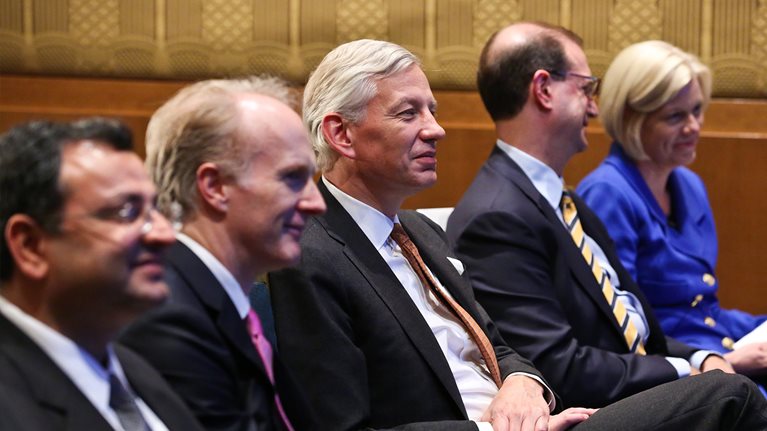Three years ago we joined with the Canada Pension Plan Investment Board (CPPIB) to create Focusing Capital on the Long Term, an initiative aimed at encouraging long-termism in business and investment decision-making. Last week the effort took a big step forward with the creation of FCLT Global, a new independent non-profit backed by a coalition of founding supporters (BlackRock, CPPIB, Dow Chemicals, Tata Sons, plus McKinsey) and member organizations from nine countries.

At the helm of FCLT Global is Sarah Williamson, a McKinsey alum who has held senior roles in investment banking and asset management. She believes the organizations supporting the effort increase the opportunity for impact. “Our members are serious players in the system,” she says. “With their weight behind the initiative, we can do more than just develop insights into the problem, we can have lasting impact on changing behaviors.”
Speaking at last week’s launch event, BlackRock executive and FCLT Global chairman Mark Wiseman described the new non-profit as “a do tank, not a think tank,” working to develop practical tools that organizations can use.
Unveiled at the same event, our latest research for FCLT Global suggests that pressure on companies to run their businesses with a short-term focus is actually increasing. Responding to our survey, 87 percent of business leaders said they felt most pressure to demonstrate financial results within two years, up from 79 percent two years ago.

Conor Kehoe, a McKinsey senior partner who led early research on long-termism which led to the establishment of FCLT, is not surprised by these findings: “Many public companies boards say they sometimes forgo value-creating investments to protect short term earnings. And the pattern of investment is dramatically different between public and private companies matched for size and industry. Private companies invest more and their investment is much less distorted by a desire to meet short-term profit targets.”
As Sarah points out, these distortions have implications far beyond the executive suite: “Long-term investments by companies in things like innovation and job creation mean that future generations can be better off. If companies are excessively short-term in their decision-making this may no longer be the case.”
For our latest thinking on this topic, please visit our Long-term Capitalism collection page.